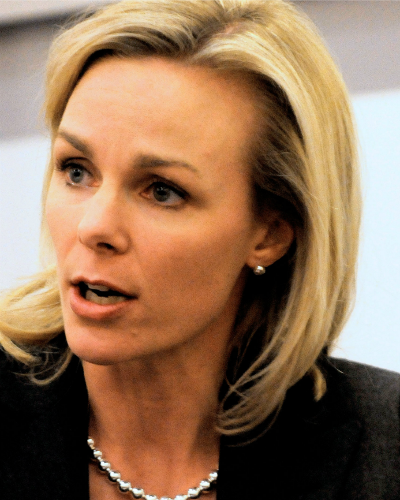Unveiling the World of Antitrust
Columbia Law School Professor Anu Bradford and a Team of Students Have Found a Way to Answer Unresolved Questions About Markets, Competition, and New Forms of Protectionism.
New York, March 11, 2014— In the past two decades, antitrust laws have proliferated in countries around the world. Combined with substantial trade liberalization policies, this trend has fueled a debate among legal academics about whether such laws facilitate or obstruct trade among nations.
But despite the rapid dissemination of competition laws—in 1990, 38 jurisdictions had them on the books; today more than 120 do—understanding of what prompted countries to adopt the laws or how they have evolved across years and jurisdictions is limited.
Columbia Law School Professor Anu Bradford, an expert in antitrust and international economic law, hopes to change that. Together with Tim Büthe, a professor of political science and public policy at Duke University and expert in international political economy and regulatory policy, she has launched an ambitious project to collect, quantify, and analyze the world’s antitrust laws and enforcement trends.
| Columbia Law School Professor Anu Bradford |
Project's Broad Utility
The project will allow evidence-based theoretical and policy discussions about the goals of antitrust laws as well as motivations for their enforcement across global markets. Bradford’s study also will illuminate the relationship between trade and antitrust, including how the interaction between the two can fuel or curtail trade protectionism.
Bradford plans to use the project to test her own theory that free trade is likely to lead to more robust antitrust laws. She hypothesizes that, when trade barriers are removed, private companies whose markets are no longer protected by their governments are incentivized to increasingly engage in anticompetitive practices. Regulators must then in turn ratchet up their antitrust laws and enforcement mechanisms to protect gains from free trade.
Bradford’s analysis and underlying data also will have broad utility beyond trade and antitrust, including for discussions about the transnational spread of legal norms and practices since many countries model their laws on foreign statutes or templates endorsed by their trading partners. As a result, the research will allow for the examination of the relative influence of the U.S. and EU in setting norms globally.
Bradford has assembled a team of approximately 30 J.D. and LL.M. Columbia Law School students to help her dig up the facts.
“I really wanted to elevate the level of conversation with hard, concrete information on the various trends,” said Bradford, who was awarded a grant from the National Science Foundation’s Law and Social Sciences program for the project. “This is the most ambitious data-driven project on international antitrust law and enforcement ever done. It allows us to test for the first time some unresolved theoretical questions that have significant legal and policy implications.”
Bradford is equally excited about the generative nature of the project.
“Other scholars can use our research and build on the work we are doing,” she said.
Hands-On Work for Students
Bradford and her student research assistants are gathering information about the content of each country’s antitrust laws, enforcement of those laws, and the extent to which antitrust provisions are found in free trade agreements. The students record or "code" the substantive legal information using computer software that converts this information into numerical data. Eventually, the data will be analyzed with the help of statistical methods to answer various legal and policy questions.
The students’ work so far—two years into the three-year project—has been invaluable, Bradford said.
In particular, the project has benefited from the international composition of Columbia Law School’s student body, especially among LL.M.s. If statutes need to be translated—from Arabic, Spanish, French, or Georgian, say—or certain provisions interpreted in light of local legal norms, LL.M. students have volunteered for the task. But their work goes far beyond linguistics. When the relevant agency in Venezuela declined to provide data on its antitrust enforcement efforts, a Venezuelan LL.M. student took it upon herself to read all of the agency’s cases and code them from scratch.
For the students, the project has already been a success, offering them the chance to perform research under a leading expert in the field.
Research assistant Mikaela Evans-Aziz ’14, who studied economics at UC Berkeley before coming to the Law School, always had an interest in antitrust. In addition to working with Bradford, she took an antitrust course with Professor C. Scott Hemphill and worked as an extern in the New York State Attorney General’s antitrust bureau, which Hemphill led from 2011 to 2012.
As part of Bradford’s team, Evans-Aziz maintains an Excel spreadsheet with more than two million cells of information on antitrust enforcement trends from countries ranging from France to Pakistan. She’ll have plenty of opportunity to apply what she’s learned next year when she starts her career as an associate in Winston & Strawn’s New York office—in the antitrust practice group.
“Professor Bradford is really invested in having the students gain from the project,” said Chris Megaw ’14, who leads the team in charge of coding the content of every country’s laws.
Megaw decided to participate to put his undergraduate studies in economics and math to use.
“For anyone who wants to study antitrust, it’s exciting,” he said.
